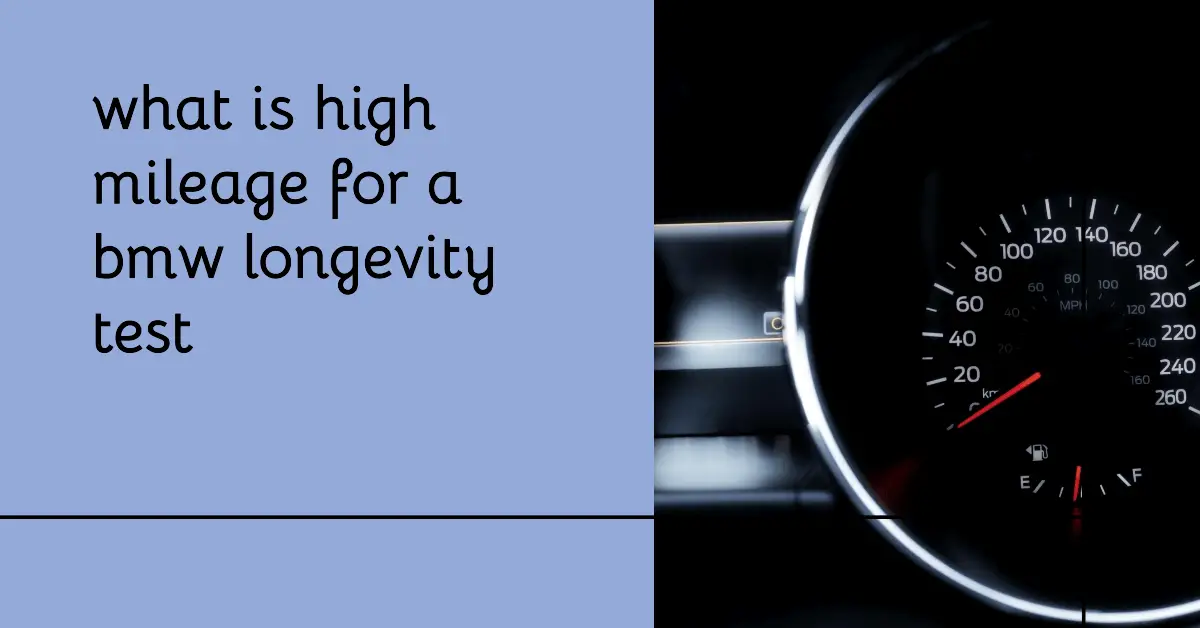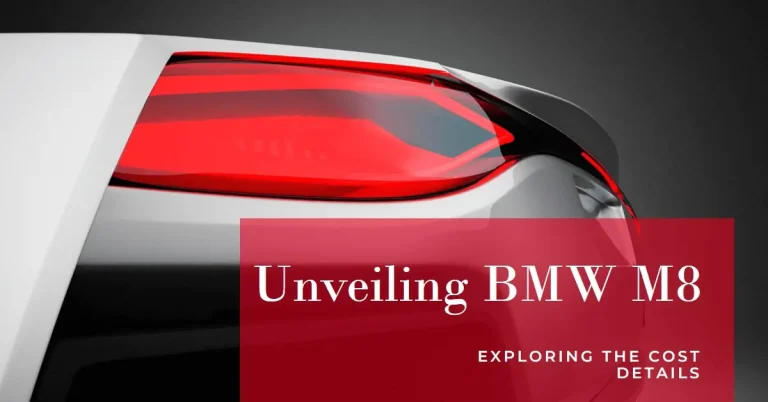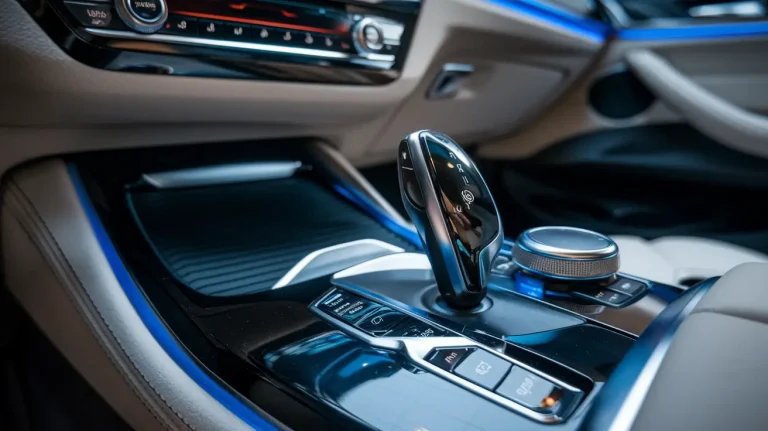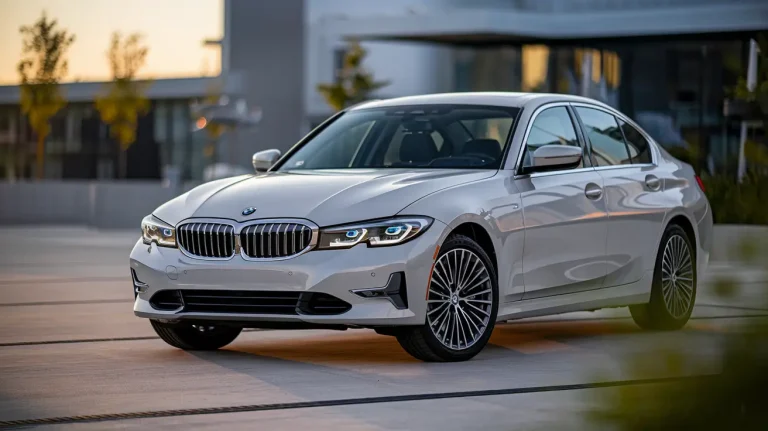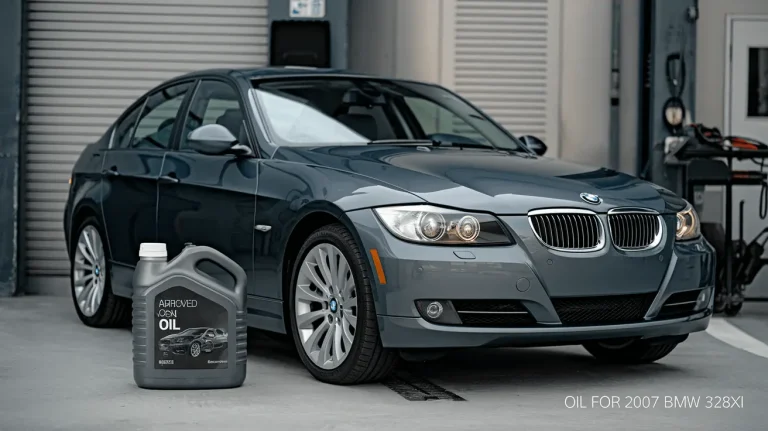What Mileage is Considered High for a BMW? When to Worry
BMW is renowned for engineering high-performance luxury vehicles that can hold up for hundreds of thousands of miles when properly maintained. But at what point should you start worrying about costly repairs and declining reliability? What is considered high mileage for a BMW?
The General Consensus: 100,000 Miles is High for a BMW
The general rule of thumb is that a BMW with over 100,000 miles is considered to be high mileage. For context, the average annual mileage for a driver in the US is around 14,000 miles. So hitting 100,000 miles means your BMW is likely at least 7 years old.
At 100,000 miles, the engine and components are entering the phase where age and wear and tear become a factor. However, today’s BMWs are capable of reaching 150,000 to 200,000 miles or more with proper maintenance and care. So high mileage BMWs can still have plenty of life left in them if they were well cared for.
BMW Mileage Capabilities Vary By Model
While 100,000 miles is a good general benchmark, some BMW models are built and engineered to last longer than others. For example:
- The BMW 3 Series is one of the brand’s most popular models known for its balance of luxury and reliability. With regular maintenance, these sporty sedans can easily exceed 150,000 miles. There are many 3 Series models on the road today with over 200,000 miles.
- BMW X3 and X5 SUVs are also capable of hitting 150,000 to 200,000 miles if properly maintained. Their ruggedness makes them well suited for high mileage.
- The BMW 7 Series features cutting edge technology and luxury appointments for a premium price. But these complex sedans tend to require more repairs after 100,000 miles. Expect more issues over 150,000 miles.
- BMW M high performance models sacrifice some reliability and component lifespans to achieve blazing speed. More strain on the engine and drivetrain means higher maintenance costs as they age. Avoid high mileage M cars over 100,000 miles.
So while BMWs are generally capable of six-figure mileages, the more complex models may start experiencing more issues over 100k miles compared to the hardy 3 Series.
Maintenance and Driving Impact BMW Longevity
Perhaps the biggest factor that determines if a high mileage BMW is worrisome or reliable is the maintenance history. BMWs require regular maintenance on intervals of around 10,000 miles to remain in top running order. Items like oil changes, brake fluid flushes, engine belts, and new spark plugs are critical on schedule.
BMW engines are also sensitive to overheating. Replacing the coolant, water pump, and thermostat according to maintenance schedules is key to prevent costly engine damage.
If critical maintenance items were neglected on a high mileage BMW, it is likely a ticking time bomb of impending repairs. Reviewing maintenance records on CARFAX or from the owner is important. You want proof of oil changes every 5,000-10,000 miles.
How the BMW was driven also affects longevity. Highway commuting miles are far easier on the drivetrain compared to stop-and-go city driving. Ask the seller if the majority of miles were highway vs city. BMWs driven hard at high RPMs their whole life tend to wear faster.
The combination of diligent maintenance and highway driving is what allows many BMWs to achieve 200,000+ miles.
Warning Signs of a Troublesome High Mileage BMW
When evaluating a BMW over 100,000 miles, look for these red flags that may indicate looming repairs:
- Oil leaks – The engine, transmission, and gaskets are prone to leaks. Signs include oil spots in parking lots, low oil level, or dirt buildup around sections. Leaks tend to worsen with age.
- Transmission issues – Slipping gears, rough shifts, and transmission warnings lights point to worn internal components. Expensive to repair.
- Engine knock or ticking – Signs of low engine compression and worn internal parts. Could lead to eventual engine rebuild or replacement.
- Dead battery – May point to a faulty alternator not properly charging the battery, which will be an ongoing issue.
- Check Engine light – Could be hundreds of different engine or emission issues. Have codes scanned to assess severity.
- Failed inspection – Safety issues or check engine problems that prevent passing state inspections are concerning.
While high mileage BMWs may develop some of these issues eventually, their presence indicates the previous owner did not properly maintain the vehicle or issues were ignored.
What Maintenance Costs Rise Over 100,000 Miles?
Once a BMW crosses 100,000 miles, it enters the phase where parts start to wear out with age regardless of use. Here are some common items that may need replacement around 100-150k miles:
- Timing belt – Critical belt that should be replaced around 100k miles. Can cause engine failure if it breaks. $1,200 parts and labor.
- Shocks/struts – Wear out and leak oil. Cause bouncy ride and handling issues. $600-$900 per axle.
- Alternator – Fails to charge battery. Causes dead battery. $500-$900 for replacement.
- Radiator, hoses, water pump – Overheating risk increases. Can lead to head gasket failure. $500-$1,200 for full cooling system refresh.
- Fuel pump – Stops delivering consistent fuel pressure. Causes stalling. $500-$800.
- Power steering pump – Leaks fluid and whines. Steering gets very heavy. $350-$700.
As you can see, critical components like the timing belt, cooling system, and suspension should be refreshed around 100,000 miles even if issues aren’t present yet. It saves money in the long run. Expect maintenance bills averaging $1,500+ yearly for high mileage BMWs.
Are High Mileage BMWs Worth Buying?
Whether buying a BMW with over 100,000 miles is a wise move depends on several factors:
Price and Value
High mileage BMWs can represent good value if the price has depreciated to match the increased miles. As a rule of thumb, you want to pay at most $5,000 for a BMW with 150,000 miles or more. This leaves budget for upcoming repairs. Models like the 7 Series may warrant paying even less.
Inspection
Get a pre-purchase inspection from a BMW specialist mechanic before purchase. This will catch issues the owner may not mention. Expect a $150 fee but it saves you thousands down the road on a bad car.
Needs
If you depend heavily on your vehicle for daily commuting, then an extremely high mileage BMW is risky unless you know its service history is pristine. It’s smarter for weekend use and shorter trips. For daily needs, try to find lower mileage examples.
DIY Ability
Hands-on owners who can DIY repairs and maintenance will get greater longevity out of a high mileage BMW. Paying BMW dealership rates for repairs will add up quickly. The savvy owner who works on their BMW themselves has a major cost advantage.
Desire
If your heart is set on a certain BMW model, then don’t let mileage scare you away if the price is right and major issues are addressed. For some buyers, the joy of driving their dream car outweighs mileage concerns. Just go in eyes wide open on future costs.
Tips for Getting the Most from a High Mileage BMW
To maximize reliability from a BMW with over 100k miles, keep these tips in mind:
- Continue scheduled maintenance religiously – Don’t slack once major miles are on the odometer. Stick to all maintenance intervals.
- Address leaks quickly – Don’t let small leaks progress into major repairs. Change gaskets and seals early.
- Use quality fluids – Cheap oil and coolant can shorten component life. Stick with approved brands.
- Replace deteriorating rubber – Timing belts, radiator hoses, bushings etc degrade over time even if not cracked. Swap as preventative maintenance.
- Keep up on tires – Quality all-season or summer tires improve braking distances and handling greatly. Replace them regularly.
- Fix minor issues early – That check engine light, rough idle or sticking caliper will become a breakdown if ignored.
- Clean regularly – Reduces grime buildup in engine bay that can hide leaks and issues. Makes it easier to spot problems.
- Consider an extended warranty – Can provide peace of mind for a few years if you plan to keep a high mileage BMW long term. Compare plans carefully.
How Mileage Impacts BMW Resale Value
For those concerned about resale value down the road, higher miles significantly impact what buyers are willing to pay.
As a luxury automaker, BMWs tend to depreciate faster than economy cars in the first 5-7 years. The sharpest depreciation occurs in the first 3 years. After that, values level out more gradually until around 10 years old.
Once over 100,000 miles, the effect on resale value is very noticeable. Here’s how it impacts resale pricing on average:
- BMW with 50,000 miles – Will retain around 60% of original MSRP
- BMW with 100,000 miles – Will retain around 40-50% of original MSRP
- BMW with 150,000 miles – Will retain around 30% of original MSRP
- BMW with 200,000+ miles – Worth around 20% of original MSRP
Of course, this depends heavily on model, condition, and demand. But in general, a BMW over 100k miles loses value very quickly as mileage increases. This should be considered if you plan to sell before it has extremely high miles.
The Bottom Line – Mileage is Just One Factor
While the 100,000 mile mark signals that a BMW is entering high mileage territory, keep this in mind:
Mileage alone should not scare you away from a BMW over 100k miles. Well maintained examples with complete service records can provide many more years and miles of enjoyable driving. Near the 200k mile mark is where major issues are more likely to start piling up.
The chief considerations are maintenance history, overall condition, and price. A neglected BMW with 100k miles is a much worse proposition than a pampered example with 150k miles.
While repairs and maintenance costs will inevitably rise as the miles add up, caring enthusiasts who put in the work are often rewarded with a smooth running high mileage BMW. Just be diligent with preventative maintenance, address issues promptly, get thorough inspections before purchase, and buy from responsible owners.
Focus more on the years and condition rather than just the odometer reading. Follow these guidelines and a high mileage BMW can still have plenty of life left! What are your experiences with high mileage BMW ownership? Let us know in the comments.

